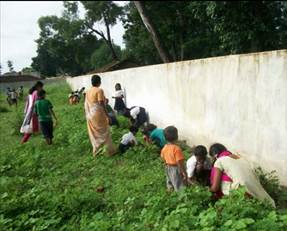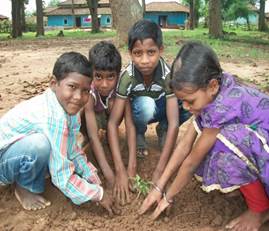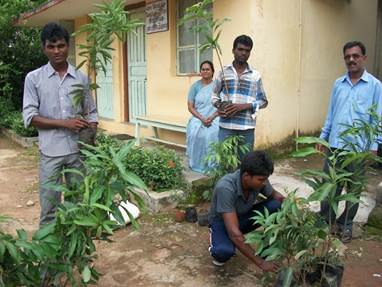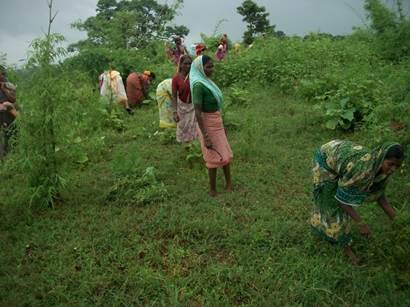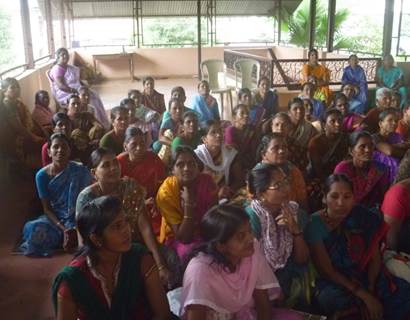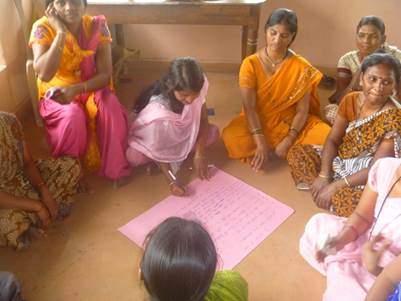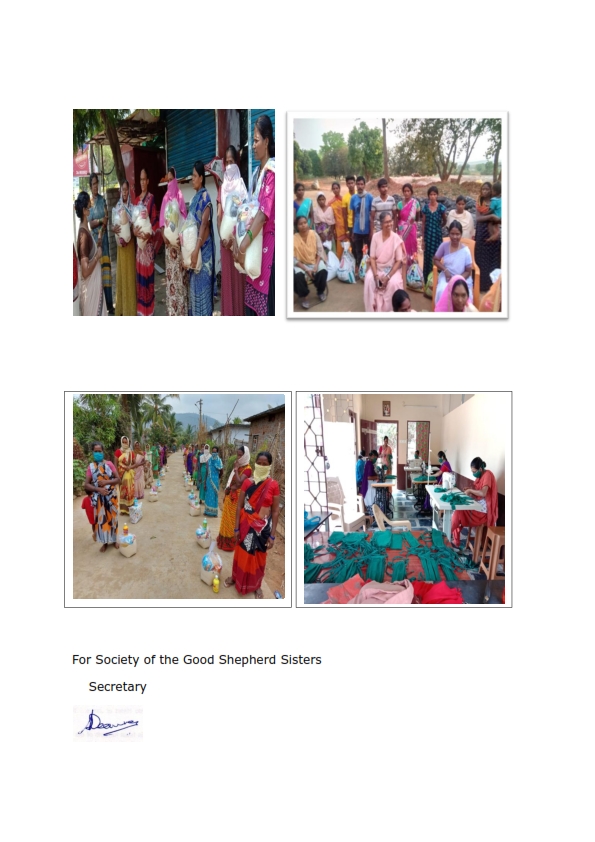Our Activities
Public Society Regn. No. 2384/2000
Regd Office: c/o. Montfort Bhavan, 11-6-862,
Red Hills, Hyderabad – 500 004.
Admn Office: Good Shepehrd provincialate, Anukampa Nivas,
Plot no.615, koradi Road, baba farid Nagar, Mankapur, Nagpur.
Maharashtra- 440030, Tel:
0712 2303855
Email id:
ceinrgs2014@gmail.com
/trea14cein@gmail.com
ANNUAL REPORT OF THE ACTIVITIES OF THE SOCIETY 2020-2021
We take great pride in presenting the Activity Report for the Year
2020-2021 and are pleased to see the development of tribals, children,
youth, women and men every year.Our main focus continues to be
Education, Health and Nutrition, Community Organisation and livelihood
Intervention with the determination to extend the involvement in
community realities.
Economic Justice PrJECT
The project entitled “Economic and Social Empowerment of Dalit and
Tribal Women in India” was directed to achieve economic justice for
women in the society. It was being implemented by The Congregation of
Our Lady of Charity of the Good Shepherd known as Good Shepherd Sisters
(GSS) in the Unit of Central East India/Nepal, in four different
locations in India spread over three states namely, Mangalagiri and
Amaravathi in Andhra Pradesh (AP), Garratola in Madhya Pradesh (MP) and
Mulakalapalli in Telangana.
Aim and objectives of the socio-economic empowerment project
1.
Reducing discrimination and increasing opportunities for Dalit and
Tribal women in society
2.
Increasing household income through sustainable Cooperatives run by
Dalit and Tribal women
3.
Increasing self-confidence & self-esteem in Dalit and Tribal women
ACTIVITIES
Activity 1.
Education of Dalit/Tribal women on their rights to access welfare
measures from State and Central Governments, banks, financial
institutions; develop their entrepreneurial skills and promote
partnership with other NGOs for joint initiatives to empower
Dalit/Tribal women.
Activity 2.
Provide technical skills on market research, peer to peer support for
setting up market networking and business expansion in order to make the
Cooperative Societies function profitably.
Activity 3.
Build entrepreneurial skills of women and capacity of the Board members
to manage their business activities with sufficient knowledge on
accountability and legal compliances.
BENEFITS OF THE PROJECT – QUALITATIVE RESULTS
-Increased entitlements: 425 (71%) women could take action to
claim their entitlements and schemes. With increased leadership
qualities, Dalit/Tribal women independently accessed welfare measures
from Government, banks and financial institutions and made
self-advocacy.
-Increased participation in Gram Sabha/ local governance system:
Last year, 262 women participated in the Grama Sabha (village level
assembly) and asserted themselves for their rights. Various awareness
programme on their rights helped them to understand the scheme and avail
the same.
-Increased Household Income:93% of the project beneficiaries
Increased their household income through the successful implementation
of the business activities carried out through the support of the
Co-operative Societies. 91% of them increased their income more than INR
25,000 per annum and among them 60% of them earned more than INR 50,000
for the last year which was great contribution to their family during
this pandemic period, where most of them struggled during the lockdown
period. The ongoing
economic activities such as Home-based Dairy, Agriculture,
Goat/Pig-rearing, Fish-farming and Petty shops further strengthened and
ensured livelihood of the target group. Four women Cooperative societies
provided loan to 245 women to start new small-scale businesses
-Increased self-confidence: The project women no more afraid or
shy of expressing their opinions and demands before the duty bearers
especially with elected members and bureaucrats. This political
awareness has changed the scenario from voiceless deprived to rights
holders. The development of entrepreneurial skills leads to greater
participation of women and inclusion in mainstream society. There was
steady change in the self-esteem and self-confidence of the project
women. Their involvement in SHGs and cooperatives, interaction with the
powerholders and the government officials made them more self-assertive
and confident. 94% of them are able to decide on family matters (budget,
education of children, healthcare)
-Gender Equality and reduced gender-based violence: The project’s
regular gender sensitization programmes and involvement of men in the
activities of women, made men and the community leaders having a
positive and encouraging attitude towards women.
OUTPUTS
TARGETED BENEFICIARIES
|
Type |
Direct Beneficiaries |
Direct Beneficiaries |
Indirect Beneficiaries |
Indirect Beneficiaries |
|
Actual |
953 |
953 |
2049 |
5752 |
Photo Gallery
Human rights project
|
Project Title |
Protection and Promotion of Human Rights of Dalit and Tribal
Girl (children) and Women in Andhra Pradesh, India.
___________________________________________ |
|
Project of |
Good Shepherd Sisters Toronto |
|
Local implementing organization |
THE SISTERS OF THE GOOD SHEPHERD -NAGPUR |
|
Project Location |
MANGALAGIRI and AMARAVATHI |
|
Target Focal Area |
MANGALAGIRI AND AMARAVATHI- ANDHRA PRADESH, INDIA |
|
|
|
Project overview
Rights of tribal and Dalit women and girl children in India are an issue
of great concern. In a patriarchal society like India, women, especially
those who are born in the Dalit or tribal communities face life-long
challenges. Increasing incidences of gender discrimination &violence,
child abuse, social and economic deprivation, and exploitation of tribal
and Dalit communities by the other dominant caste communities, calls for
an attention and immediate intervention. Sisters of Good Shepherd have
been addressing the issues of human rights in Mangalagiri and Amaravathi
of Andhra Pradesh, India, through appropriate strategies and strategic
interventions.
Components of the project
·
Protection and Promotion of Human Rights of Dalit and Minority
Communities in Mangalagiri and Amaravathi
·
Motivation Centers to Ensure Formal Education and Life Skills for the
School-going Girls
·
Child Protection through shelter home and “CHILDLINE- 1098”
in Guntur District.
Project Goal:
Dalits & tribal women and girls from Guntur District of Andhra Pradesh
State in India become sensitized and guarded against potential human
rights violations and enjoy fundamental freedom.
Project Results: Outcomes and Outputs
Outcomes:
1.
The
rights of Dalit and tribal communities are protected and promoted:
Total 125 Legal Cases are reported in GSC on abuses and exploitation
against Dalit and tribal communities. 72 cases were settled down with
the project legal cell service. During the reporting period, 70%
programme participants (tribal and dalit) became aware of their rights.
The project helped 35 women in applying YSR Cheyutha which is a
yearly pension scheme for women who are above 45 years. 16 women
received the YSR Chethodu scheme Rs.10,000/each (a scheme for all
below poverty line families for starting any small-scale business-like
tailoring, petty shop, street vendors and etc.
2.
Improved school retention, increased self-confidence and self-esteem of
school going children:
Total 8 dropout children were re-enrolled in school and 106 parents from
three motivation centers are taking interest and motivating children to
attend school. 600 school going children actively participated in
different programs organized by the project.
At, Mangalagiri, the project helped
3 dropout children admission in 10th std. These three
students are now eligible for higher secondary education.
3.
Children in Guntur District are protected thorough shelter home and
“CHILDLINE- 1098”:
166 children were admitted to 10 shelter homes in Guntur district. Out
of 166, 42 children are in Good Shepherd’s shelter home ‘Karunalayam’.
543 child abuse cases were successfully resolved through Chldline1098.
Outputs:
1.1.
Organized 112 awareness programs on Legal Provisions in which 2667
members participated and increased knowledge on legal Laws & Acts,
especially on SC/ST rights.
1.2.
5 seminars were conducted on interfaith dialogue. 98 religious leaders
participated in these events. The religious leaders made statement of
support on promoting religious harmony and reducing caste and
religion-based violence. They shared their commonalities and spoke for
promotion of religious tolerance.
1.3.
23 leadership capacity programs were conducted for 1022 CBO members. The
main purpose of the meetings was to increase CBO leader’s capacity to
take initiative to address human rights issues. The training helped 117
CBO leaders to increase their leadership capacity to address the human
rights issues. 31 leaders brought human rights related issues to the
concerned authorities.
1.4.
7154 people became aware of human rights, women rights and child rights
through 8 International and National events organized by the project.
Human Rights, Child Rights, Anti Trafficking, Anti Child Labour, Women’s
Day and gender-based violence were the main events.
1.5.
125 people were provided with legal support in which 72 cases could
settle with the project effort.
1.6.
The project referred 24 cases to various support systems viz; police,
child welfare committee (CWC), women and child department and etc.
1.7.
Organized 6 Leadership skills and Community Development for VRO, VRA,
and Panchayat elected women in 3 Mandals in which, 153 women development
workers were trained on human rights. Now, these women actively involve
in the community development and support human rights activities.
1.8.
The project’s fact finder made door to door visits to find out the
allegations and cases are genuine or not. 109 factual of cases are
gathered and recorded. The fact finder faced some difficulty during
COVID-19 lockdown period.
1.9.
All cases were settled down with the effort of the project legal cell
and referral services. During the reporting period, no cases were
proceeded to the court.
1.10.
Total 125 cases were recorded and maintained with proper records.
1.11.
15 women who have lost their livelihood during Covid-19 were supported
to venture out new business activities.
2.1.
8 School dropouts were identified and reenrolled in the school and now
they are continuing their education.
2.2.
16 children’s peer support groups were formed and each group meets at
least once in a month. There are 430 children (boys-196, girls 234) a in
16 children’s peer support groups. During the reporting period, 34
meeting were taken place.
The children used to discuss on child rights, importance of education,
Children’s Parliament, Leadership Skills, village issues and etc.
2.3.
1623 school going girls became aware of child rights and girl child
rights through National and International events. They were also trained
on health, hygiene and leadership skills.
3.1.
165 children in need of care were given care in the 10 shelter homes
with all the facilities. Now, 77 children are remaining in the shelter
homes.
3.2.
With the support of and by the orders of CWC (Child Welfare Committee)
89 children are reintegrated to their families. These children who were
in difficult circumstances; some were rescued from railway platforms,
bus stations and public places, shops, hotels, companies and factories.
The project rescued them from abuse and violence.
3.3.
5514 people became aware of Childline Public Grievances Redressal
System. However, 4 cases were only addressed under the Public Grievances
Redress System due to Covid-19 restriction for open house programmes.
3.4.
112 Awareness programmes were organized on information about Child
Protection Mechanisms available under the CHILDLINE-1098. 4931 children
became aware of the child protection mechanisms of CHILDLINE.
3.5.
192 children at high risk were provided with professional counselling,
psychosocial support and legal services.
3.6.
The project organized 22 network meetings with various service providers
like Labour Department, District Legal Services Authority, Women & Child
Welfare Department,
local NGOs, print and electronic medias
and Police for providing legal services to the children in need of care
and also to prevent Human
rights violations especially against Tribal/Dalit women and girls.
Welfare schemes for the Tribal and Dalit were also discussed in the
meetings. 157 children at high risk were supported with legal
services to settle their issues.
Staff capacity building programs conducted for all HR Staff (30nos) on
Project Orientation, human rights (UDHR, UNCRC, and CEDAW, human rights,
Good Shepherd position papers,
child labor, POCSO and
Laws and acts related SC/ST). The staff increased their knowledge and
capacity and have been effective in the implementation of the programme.
Both half yearly and annual
review meetings had taken place; the meeting was an opportunity for the
project staff to share their experience and learning to each other.
Significant Changes
There is increased awareness among the programme participants on their
rights especially among girls and women. The community is aware of
giving equal opportunity to the girl especially on the education health
and nutrition. After joining the HR project, majority of women, now have
a platform to express their problems and learn their rights
Number of program participants
|
|
Above 18 |
Below 18 |
Total Program Participants |
||
|
Female |
Male |
Female |
Male |
||
|
Children in need of care and support |
17 |
0 |
25 |
88 |
165 |
|
Children from vulnerable backgrounds in 3 Motivation Centers |
0 |
0 |
91 |
79 |
170 |
|
School girls participating in preventive programmes |
0 |
0 |
1623 |
0 |
1623 |
|
Members of Community-based Organizations (CBOs) |
960 |
210 |
234 |
196 |
1600 |
|
Referrals: Human Rights violations |
18 |
3 |
3 |
0 |
12 |
|
Persons Requiring Legal Support |
99 |
22 |
4 |
0 |
125 |
|
Children on Child Protection mechanism under CHILDLINE 1098 |
0 |
0 |
3169 |
1762 |
4931 |
|
Total |
8626 |
||||
PHOTO GALLERY
DKA Project
The project Title “Promotion of rights and improved livelihoods for
Tribal adolescent girls and boys”
Location:
Mulakalapalli- Telangana
This project, Promotion of
Rights and improved livelihood for Tribal Adolescent Girls and boys in
20 Villages is funded by
DKA Austria for the past three years.
This executive summary highlights the major achievements and the results
from this project. This third-year project period is from 01 January to
31 December 2020. The present progress report is for the period of 01
January to 31 June 2020.
PROJECT OBJECTIVES
·
Reduce early school drop-out
·
Increase skills and job-seeking capacity of girls already out of school.
·
Reduce discrimination and abuse of tribal girls
|
Specific objectives |
Achieved |
|
Reduce early school drop-out |
This has been partially achieved. The students are motivated to
attend regular class and continue their education in formal
schools. The dropouts were identified and encouraged to attend
tuition classes, pay fees and appear for open exam. All those
appeared in the open exam passed with 100% result. This success
has created a motivation among students and we hope more
students will come forward and complete their basic education.
|
|
Increase skills and job-seeking capacity of girls already out of
school. |
This has been partially achieved and being promoted. The girls
have been coming forward to learn
the procedures to apply for jobs through life skill trainings.
Some of the girls have applied for the jobs. We hope that most
of the girls who have completed their trainings will get some
job and start earning. |
|
Reduce discrimination and abuse of tribal girls |
The adolescent girls, boys and parents were trained on advocacy
skills during the village level information meetings. The
information meetings helped them to express their family
problems and community issues at local level. They came out of
their fear and shyness and gained confidence. Through legal aid
few girls were helped to in legal issues. |
Photo Gallery
Covid-19 Interventions
1.
Covid-19 intervention under economic justice project
The outbreak of COVID-19 pandemic and the consequent lockdown in India
have disproportionately affected the marginalized communities due to
loss of livelihood and lack of food, shelter, health and other basic
needs.
Amidst several disturbances all around, the sisters and the mission
partners of the Good Shepherd in four sites of Economic Justice Project
took stock of the situation and plunged into action.
Goal:
Contribute towards prevention of COVID-19 infection and reach out to
women beneficiaries and their families with essential commodities during
the nation-wide lockdown
Objectives
Objective 1: 830
dalit/tribal women educated on the preventive aspects of Coronavirus
Objective 2: Ensured food security to preserve health of the people
during covid-19 lockdown
Objective 3: The endeavors of EJ programme participants are sustained
ACTIVITIES
Activity 1: Orientation provided to the Dalit women on the basics of
COVID-19 and knowledge on preventive measures of COVID-19 pandemic.
Activity 2: Supply sanitizers and washable masks to 830 individuals and
train them to make use of such preventive materials for protecting
themselves from COVID-19 pandemic.
Activity 3: Supply of essential commodities among women beneficiaries
(680 members from the Economic Justice Project and another 150 non-E.J.
beneficiaries).
Activity 4: Supply cattle feed to women beneficiaries of EJ project who
engaged animal husbandry
2.
Project Proposal TITLE: COVID-19: Responding to the emergency needs of
the marginalised and AFFECTED COMMUNITIES in
3 states of India (G01/EME/0420/04)
LOCATION:
1. Good Shepherd Convent, Ward No. 2, Bhatera Chowki, Balaghat.
2. Good Shepherd Convent, Gundge Road, Karjat.
3. Good Shepherd Convent
Foundation, Deepabhavan, No: 6 Veteran Lines, Pallavaram.
Tamil Nadu
4. Good Shepherd Convent, Nochipatii, Ayothiapattanam, Salem, Tamil
Nadu.
PROJECT PERIOD
15 April 2020 to 14 July 2020
ACTIVITY DETAILS
The project implemented the following activities to responding to
Covid-19 at four sites;
1.
Distribution of food and essential materials for survival during the
lockdown period
2.
Organising awareness and information programmes on the spread and impact
of Covid-19
3.
Motivating target groups to practice preventive measures to protect and
safeguard from contacting Covid-19
4.
Counselling and guidance to the target group to cope with the situation
arising due to Covid-19
At all four sites, the primary focus during the lockdown was to provide
food materials because the majority of the beneficiaries had lost their
livelihood. GSS, after getting permission from their respective local
administration had distributed the essential food materials and hygiene
kits to 1140 families. 48 awareness and information programmes were
organized on Covid-19 safety measures and government Covid-19 packages.
This helped 1140 family members to practice preventive measures to
protect and safeguarding oneself and others from contracting virus and
also obtain the benefits of public distribution system (PDS)
Counselling and Guidance were given to the target groups in order to
cope up with the situations which were arising due to Covid 19. This was
provided to 711 people especially children, pregnant women and lactating
mothers and elderly persons. The project also received support from the
professional medical personnel to help the people to overcome their fear
and anxiety on Covid-19 through their motivational talk, counselling and
psychological support. During the distributions, all four sites followed
the Government’s directions i.e; social distancing, wearing mask and
frequent hand washing/sanitizing. The site wise details are mentioned
below;
TARGETED BENEFICIARIES
Enter below the project’s Actual data for this project
|
Year 2020 |
Direct Male |
Direct Female |
Indirect Male |
Indirect Female |
|
|
466 |
674 |
1591 |
1642 |
3.
Covid-19 Prevention and Protection among the Unorganized Workers in
India
Report Summary
|
Project period |
1st May 2020 to 31st October 2020 |
|
Project of |
The Society of the Good Shepherd Sisters, Nagpur |
|
Local implementing organization |
Good Shepherd Sisters, Amaravathi, Mangalagiri, Chainpur and Goa |
|
Project Location
|
Amaravathi and Mangalagiri of Andhra Pradesh state, Chainpur,
Jharkhand state and Goa |
|
Target Focal Area |
Immediate response for prevention and protection from COVID-19 |
Summary during the Reporting Period of the Project
Based on the key activities and objectives planned for the project, the
table below summarizes the key results achieved during the reporting
period.
|
Planned activities |
Key achievements |
|
a)
Procuring of food grains (rice, dhal, cooking oil, salt, chilli
powder), sanitary items and packaging |
·
At all four sites, procurement committees were formed with
representatives from the project staff and volunteers. Quality
of the material was ensured by the procurement committee. The
project purchased both food and sanitary items from the
wholesale shops. |
|
b)
Preparing a distribution schedule and informing people |
·
The project implementation committee prepared a schedule for
distribution to avoid chances of confusion, crowding and
ensuring lockdown compliances such as physical distancing and
wearing of face masks were strictly followed. Beneficiary list
was prepared and they were informed well in advance. The relief
coupons were also distributed to each beneficiary with their
name written. |
|
c)
Obtaining permission from the authorities |
·
The vehicle was given a pass and the permission order from the
District Collector. All persons who involved in the relief work
were provided with badges signed by the authorities concerned.
·
The police were informed in advance about the distribution of
the relief material and they joined the relief team during the
distribution. The project also received support and permission
from the village leaders to carry out the relief work.
|
|
d)
Distribution of the relief material
|
·
At Amaravthi (Andhra Pradesh) The GSS could reach out with the
relief material to 402 families which is more than the proposed
(300). 402 families were provided with food grains for survival,
which helped 1,463 people to have sufficient food intake. The
food items include rice 25 k.g, dhal (pulses) 4.k.g, cooking g
oil 2 liters, salt 1 k.g, chilli powder 500 gm and turmeric 500
gm. Each family was also provided with 2 masks, 2 bath soaps 100
gm and 2 washing soaps 100 and 3 washing powders 100 grams. At
Mangalgiri (Andhra Pradesh) the project provided essential food
materials to 440 families. The food material supply helped 1382
members to protect from starvation, especially the aged and
handicapped. Each family was given rice 10 kgs, wheat flour 1
kg, wheat rava 1k.g, dal 1 k.g, sugar 1 k.g, oil 1 liter, fruits
2 k.g (papaya and banana), vegetables 10 kg. (Drumsticks,
chilli, tomato, brinjal, onions, ladyfingers, beans and
gherkins) biscuits 3 packs 100gms. For the prevention purpose,
each family was provided with phenyl I liter, 1 bottle sanitizer
100ml, Masks 2 and soaps 2 100 gms both bath and washing. At
Chainpur (Jharkhand) 200 families (1028 members) received
sufficient food material. Each family received rice- 25 k.g,
wheat flour 2 kgs, daliya 1 k.g, cooking oil 2 liters,
dal 1 k.g, white gram 1 k.g., brown gram 1 k.g, soya chunks
1k.g, chilli, turmeric and coriander powders and masalas 1
packet each 100 gm. Salt 1 k.g.
Every family was also provided 1 bottle sanitizer 250ml,
hair oil 1 bottle 100ml, 2 bath soaps 100gm and 2 washing soaps
100gm for their survival during the lockdown period. At Goa, the
sisters provided the relief material to 315 families. They
received sufficient food and health measures for their survival.
155 families were provided food Items viz., rice 25 Kgs, wheat
flour- 5 Kgs, dal- 4 Kgs, sugar – 2 Kgs, oil- 2lts., salt- 1 gg,
tea leaves- 200g and sanitary Items- sanitizer 100ml mask-2Nos,
bathing soap- 100g, washing powder- 500g. 160 families were
provided food items- rice 15 kgs, wheat flour- 5 kgs, dhal- 2
kgs, sugar – 1.5 kgs, oil- 1lts, salt- 1 kg, tea leaves- 100g
sanitary items- sanitizer 100ml mask-2nos, bathing soap- 100g
and washing powder- 500g. 1120 people benefited by this relief
materials in Goa. |
|
e)
Up-gradation of internet |
·
During this pandemic and lockdown days, all the project sites
and MDO office used virtual meetings (Zoom) to review the relief
work. Amarvathi site purchased a wireless internet devise (JIO
Hot Spot) and a web camera for better internet facility and
communication. All other sites upgraded the internet facility
regularly. This was really helpful to the project sites,
especially during the Zoom conferences with MDO for sharing the
project’s updates and remote monitoring.
|
RESULTS
Through the relief work, the project has witnessed some changes among
the community within this short span of time. Some of the achievements
are mentioned below;
Increased knowledge on preventive measures, Improved hygiene and
sanitation:
The 1795 children and 1682 women, and 1515 men were repeatedly educated
on the need of personal and community hygiene in order to contain the
spread of the virus. Various awareness programs were conducted fort the
people in smaller groups that helped the community
to become aware of risks associated with COVID-19 and started practicing
preventive measures. Every
community member reported that they had begun washing their hands
frequently and wearing masks before getting into public places and
followed Government’s directions. Project staff and volunteers confirmed
that hand washing and wearing mask despite not having previous culture,
was widely adopted in every community they worked with.
Photo Gallery
Domestic Workers Welfare Association- Nagpur
Nagpur Unit is part of National Domestic Worker’s Welfare Association
which works in 20 states
1130 Women are already registered in this movement.
This year 800 new women have taken membership in the union. They
build their self-confidence &self-esteem to live with respect and
dignity through the following activities.
·
Regular visits to the families in the slums
·
Celebration of important local and national festivals
·
Observation of important days like International Girl Child Day, Human
Rights Day.
·
They have registered as a Multipurpose Co-operative to take up economic
activities.
·
Livelihood training like cooking, housekeeping, care of the sick and
elderly to earn supplement income are conducted.
·
50 women have taken up alternative income generation programme due to
Covid-19.
International day of the girl child 11th October-2020
·
Distribution of posters to the schools and other institutions on child
safeguarding prior to the actual day
·
The children presented a skit on how a girl child is treated at home and
the video was sent and it was presented on 11th October
during the province celebration. Many parents and children were present
for the celebration of international day of the girl child. It was a
great opportunity to present the problems girl child face at home and in
the society.
·
Competition for children on negative impact of Covid-19 on children and
their families
Human Rights Day celebration on December 10th
·
Stood in 4 traffic signals of Nagpur city
to create awareness on various rights by the staff and domestic
helps.
Trainings were organized for youth and women on
·
Child Safe Guarding
·
Cybercrime and online sexual abuse for the youth
·
Christmas celebration with Inter religious leaders
·
Concept of Cooperative Society and Savings, life skills and livelihood
skills like soap, surf and phenol making and care of the elderly to the
domestic helps during Covid-19 for the domestic helps.
Distribution of food materials during Covid-19
Sisters responded immediately to the people who were stranded from
neighboring states especially the construction workers. We connected
them to NGOs – Gurudwar, provided packed food and also distributed
relief materials. We provided food grains and pulses to 800 families of
unorganized workers like daily laborers, construction workers, vegetable
and fruit vendors, and domestic helpers and to the elderly people
from our neighborhood with the support received from National Domestic
Workers Movement, Mumbai.
v
500 Families were supported with Sanitary Kits at Garratola, Balaghat &
Nagpur (Sanitisers, Sanitary Pads, Soap, Masks & Bleaching Powder with
the support received from NMSSS
v
220 Blankets were distributed during winter to the poor families.
REPORT ON CHAINPUR COMMUNITY
2020-2021.
International Women’s Day Celebration
There were a few questions and interactions, the difficulties that the
mothers face in their families.
It is the man of the house who is the main cause.
Sometimes they are helpless.
We parents have to be an example for our children.
It was very interesting the way they put forth their thoughts. I
was a grand success. We ended the celebrations by distributing
refreshments.
Annual ACTIVITY REPORT FOR THE YEAR 2020-2021, BAHARI, ASSAM
The seed of our Good Shepherd presence is planted for the first time in
North East at Barpeta district, Bahari Village in Assam. For the people
of Bahari it is wonderful to experience the group of religious sisters
for the first time. The main target group of people that sisters work
with are; Assamese, Bengalis, Muslims and Biharies. The main focus is on
women and children especially girl children. At present we are engaged
in Education Ministry in the diocesan school of Bongaigaon, Family visit
and Social Services according to the needs the of the people. The people
and children are happy with the presence of Good Shepherd Sisters and
they too feel happy and satisfied to share their mission and charism of
Jesus the Good Shepherd to our people here.
Education Ministry:
Good Shepherd Sisters collaborate with St. Don Bosco English Medium
School Bahari, which belongs to Bongaigaon diocese. The parents and
children are very happy to have our presence and bring up this school to
the standard with integral development.
Sr. Thomasy was the Headmistress of the school and Sr. Nisha was
teaching in the school. The Parents and the children are very grateful
to her for the love and care. Her innovative ideas, skills and hard work
brought around development in the children to be the better citizens of
our country.
This year Due to COVID-19
Pandemic the classes were mostly conducted online except few months.
Though sisters, teachers and students missed the physical class in the
school still sisters gave their best in teaching students through online
zoom, video as well recorded classes on Whatsapp and students were kept
occupied with their classes and studies. It was a different experience
of teaching students online. Sisters used their creative ideas to teach
the children.
AID GIVEN TO THE MIGRANTS IN BRICK INDUSTRY DURING
COVID-19 LOCK DOWN:
During the lockdown in March 2020 Good Shepherd identified the migrant
brick labourers from the owners and visited the spot. They also
contacted the circle officer and the local police officials to get the
details. These migrants are from different parts of our country like
West Bengal, Bihar, Orissa and from different districts of Assam. They
are daily wage labourers working under the middle-class brick Industry
owners. Due to sudden announcement of COVID-19 lock down, they were
unable to travel back to their respective places. Sisters identified
around 65 families and provided them Rice, dhal, oil, wheat flour,
sugar, tea leaves and salt. Sisters had followed the rules and safety
measures ordered by the government maintaining the social distancing.
The people were happy to receive this aid. Sisters at Bahari, Assam are
very grateful to Sr. Pushpa and the Councillors for taking this great
effort.
CAMPAIGN ON OUR RESPONSIBILITY IN SAFEGUARDING CHILDREN- 3rd
December, 2020:
The International Girl Child Day
on 11th of October 2020 with the theme on “Our Voice Our
Equal Future. “On this occasion of this Good Shepherd Sisters organized
an awareness programme on the rights of the children.
We conducted one day campaign on “Our Responsibility in
Safeguarding Children.” The children are the future of our society, at
the same time they are vulnerable. Therefore, as adults it’s our
responsibility to safeguard their rights and giving them their due.
Five government and private Schools were selected, among which four
Assamese and one English Medium School. The Principal, Head Masters,
staff and students were extremely glad, eager and enthusiastic to know
the rights of the children and their safety.
They became aware of “what is child abuse”. Nobody should deny
the child right to: Education, Recreation, Good Environment, Save Water
& Food, Love & Care, Speak, and Play & Grow in freedom.
The school authorities and staff were motivated not to do any
harm to the children and to provide a child safe environment in the
institutions and the communities. It made a great impact to treat all
children equally and not to discriminate them, based on caste, creed,
colour or gender.
About eight hundred children and the staff benefited from this campaign.
The children were fascinated, motivated and happy to identify their
rights. The school faculties were incredibly cooperative and supportive.
INTERNATIONAL GIRL CHILD DAY CELEBRATION
MY VOICE=OUR EQUAL FUTURE
The International Girl Child Day was commenced on 4th
October, 2020 by the students of Good Shepherd School, Chennai and
Karjat. Our Don Bosco School Children had the opportunity to part take
in this celebration on online platform. There were 20 girls and boys
from class IX and X, gathered for the program. Due to COVID-19 situation
many children couldn’t participate.
The Children who participated in the drawing, poem and essay writing
competitions and won the prizes by the CEIN province level were given
the cash prizes and honored them. It was a great encouragement for the
other children to come out with their potentials.
Conclusion:
We strongly believe in the empowerment of people with whom we work. They
have the capacity to develop themselves. All our interventions help them
to develop their hidden potentials. We thank our programme participants
who co-operate in all the activities and believe in their own self help.
We are ever grateful to all our donors who generously contribute
for the upliftment of the poor and the marginalized, our partners from
GSIF, AP MDO, our sisters, collaborates, mission partners and staff who
are part of the process. We
remember gratefully all the duty bearers for extending their support to
the organization.
Annual Report 2020 to 2021
Society of
the Good Shepherd Sisters,
Public
Society Regn. No. 2384/2000
Regd Office: c/o. Montfort
Bhavan, 11-6-862,
Red Hills, Hyderabad – 500
004.
Admn Office: 21, Mecosabagh
Christian Colony,
KadbiChowk, Nagpur440 014.
Tel:
0712 2554811
Email id:
gscngp@gmail.com
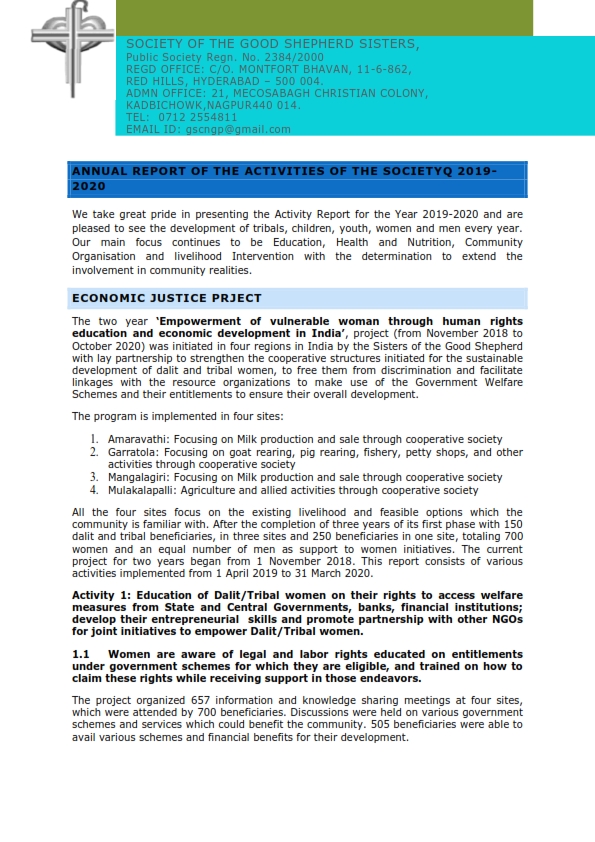
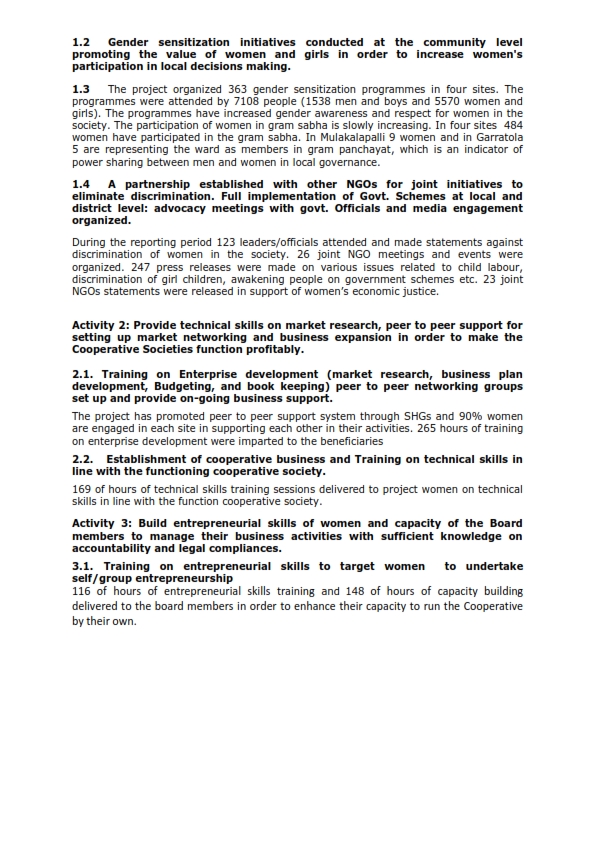
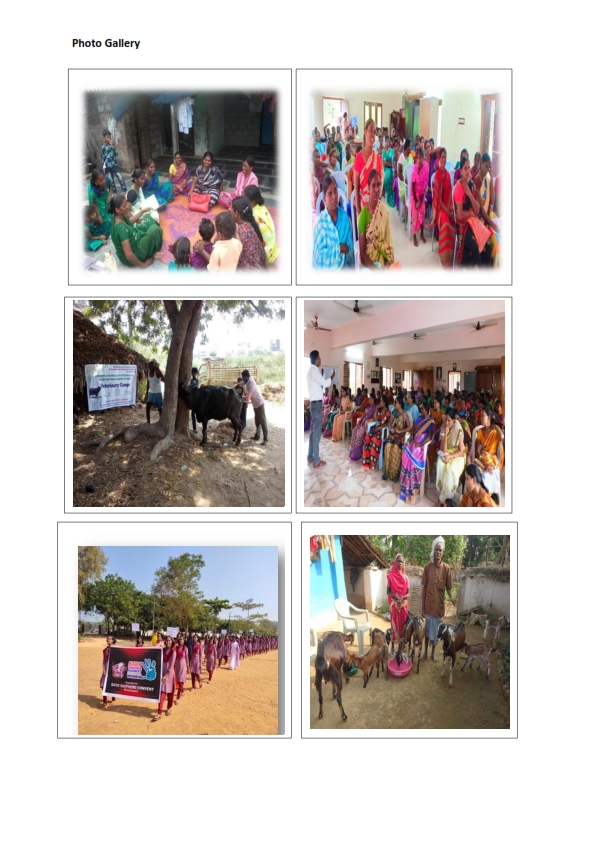
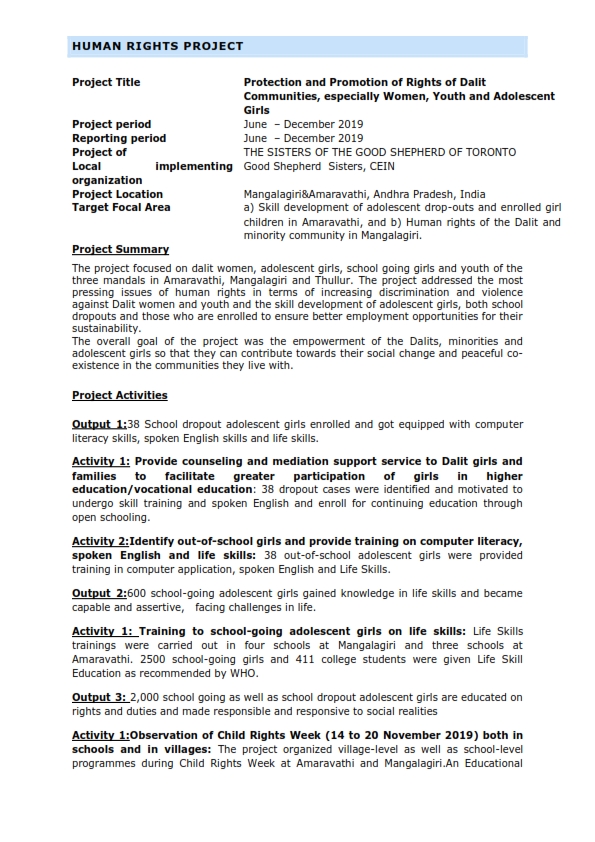
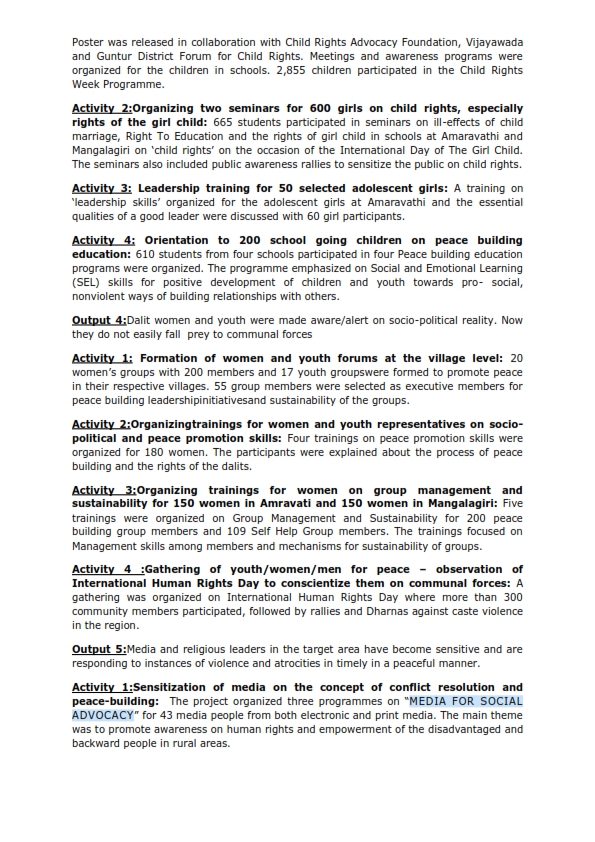
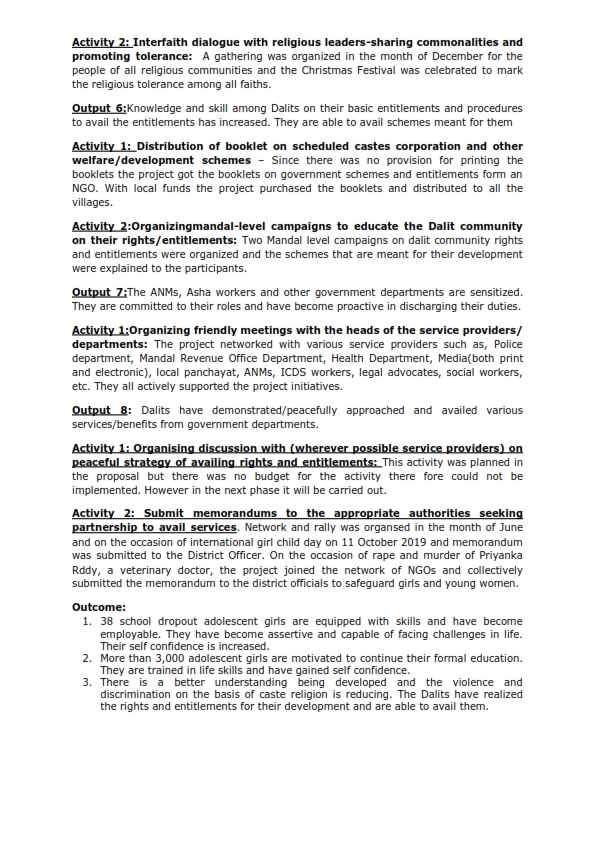
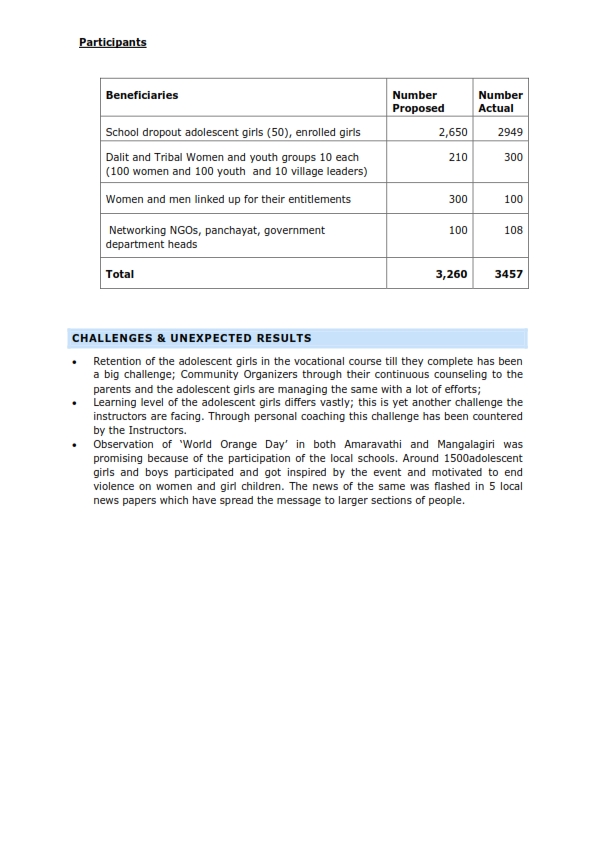
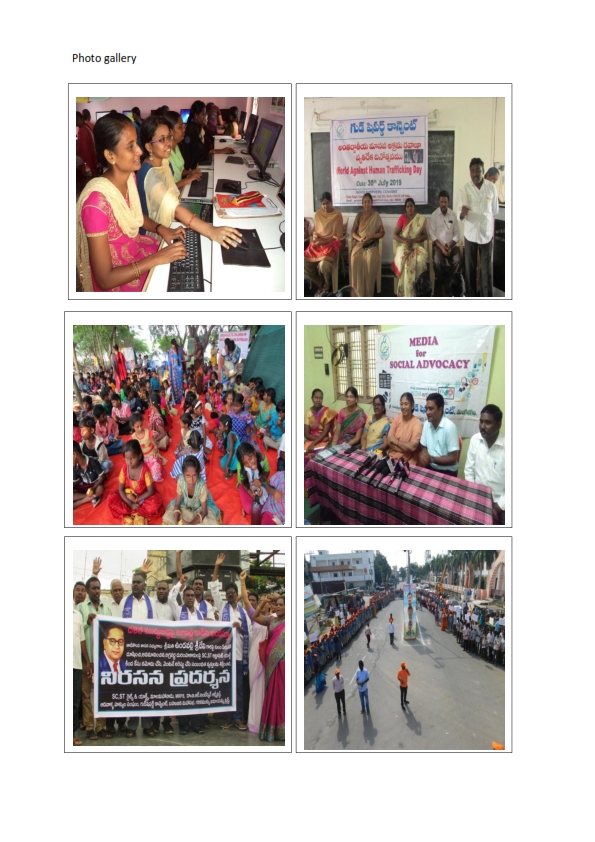
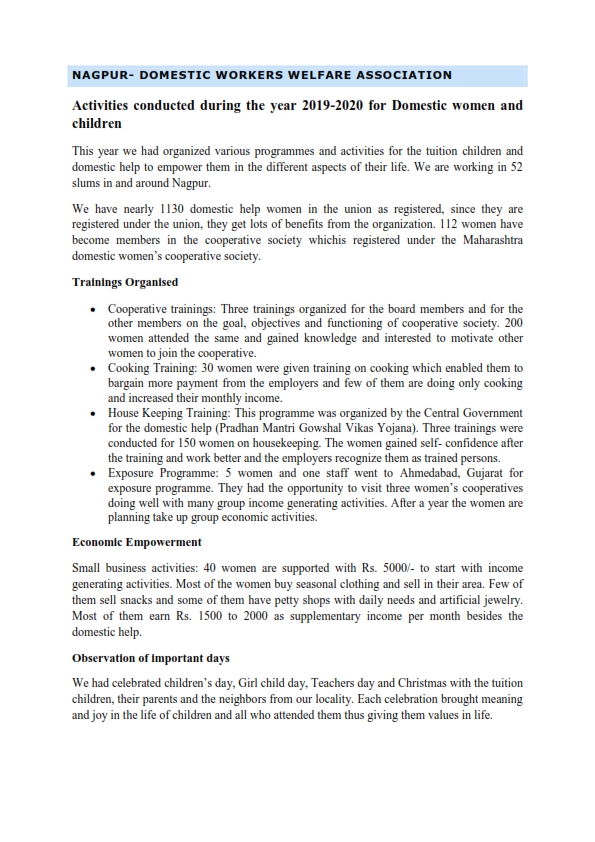
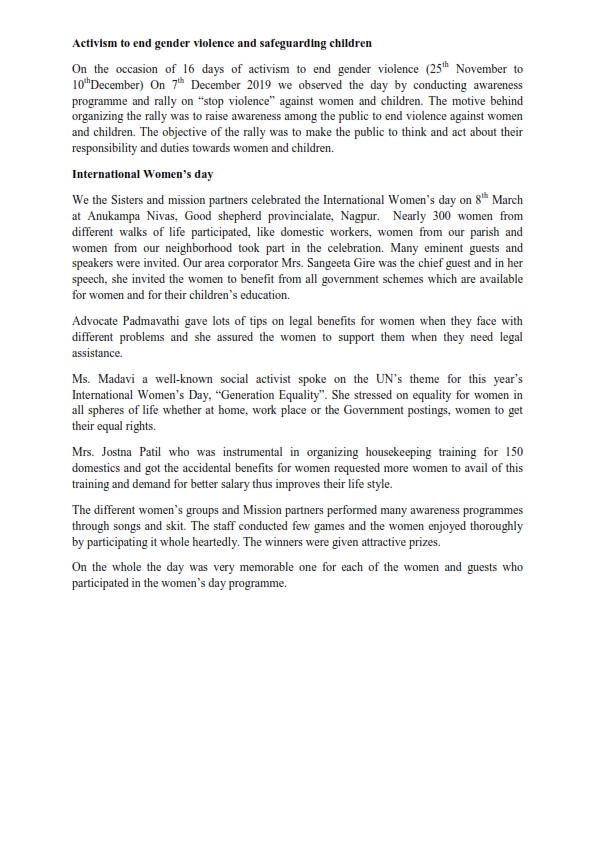
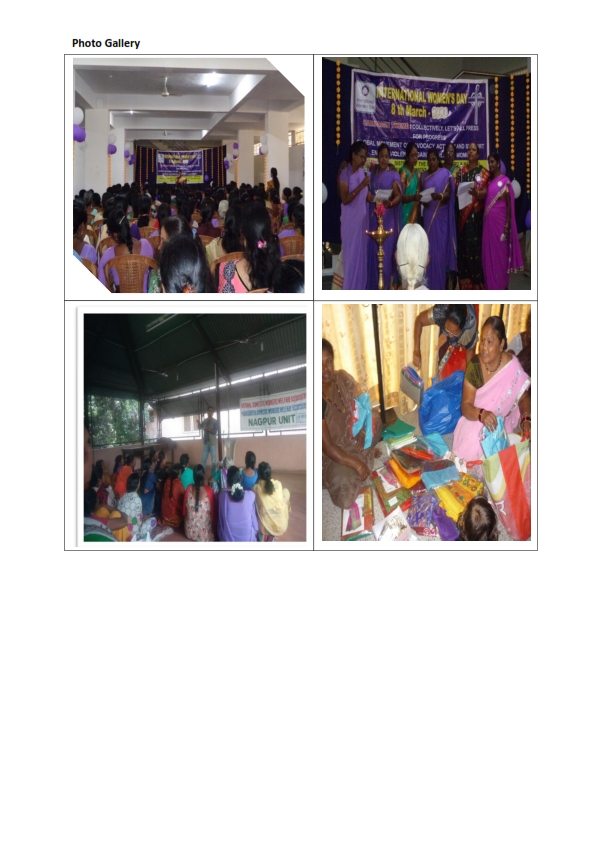
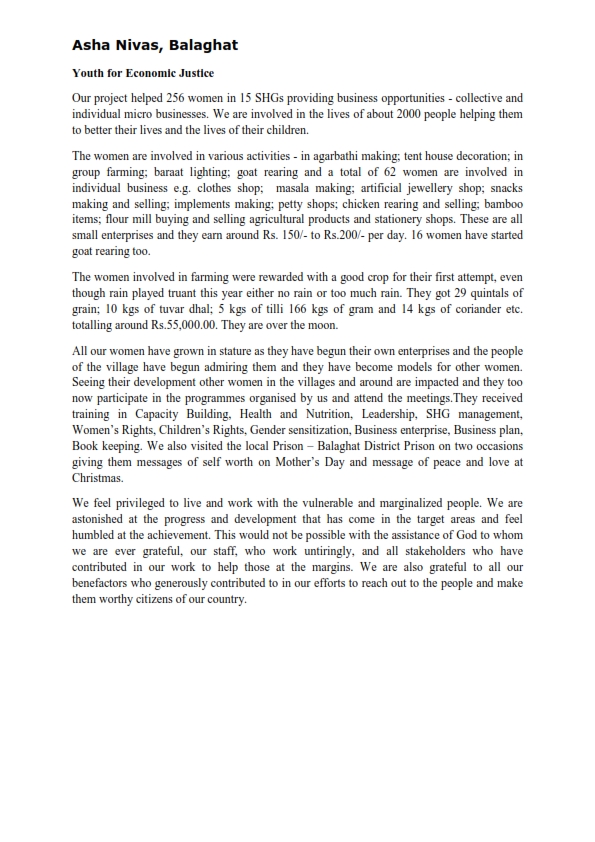
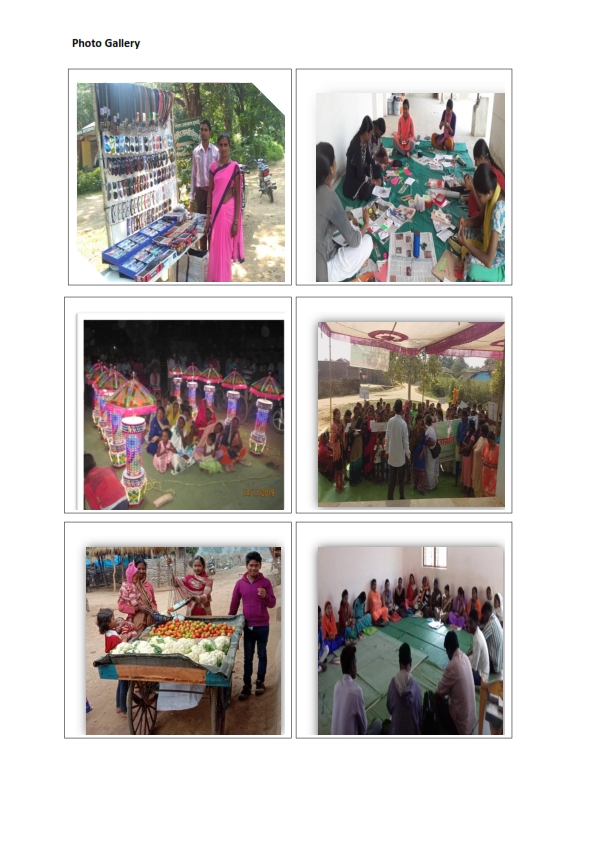
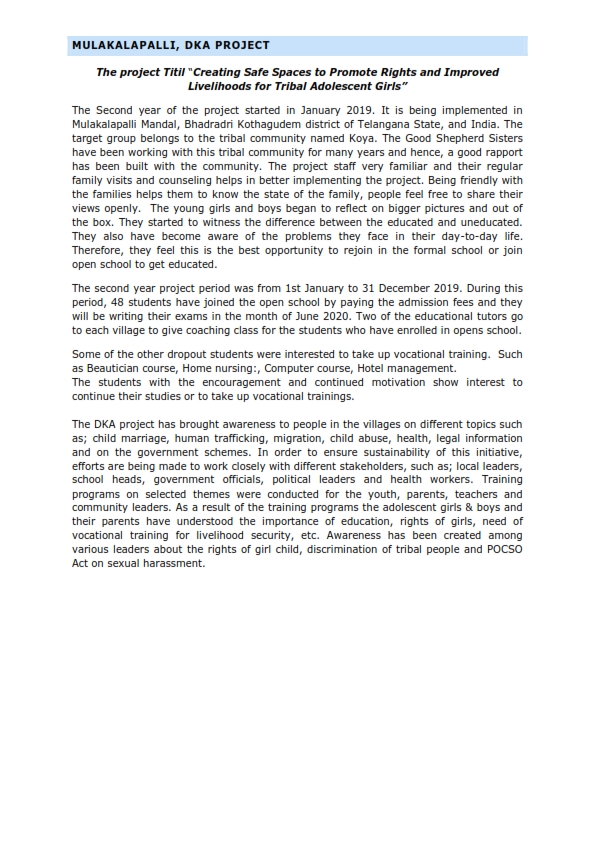
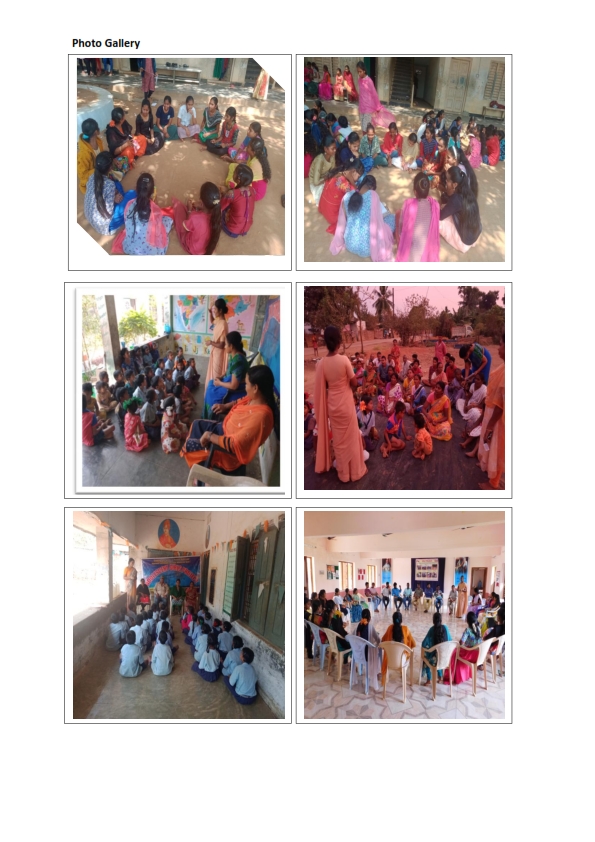
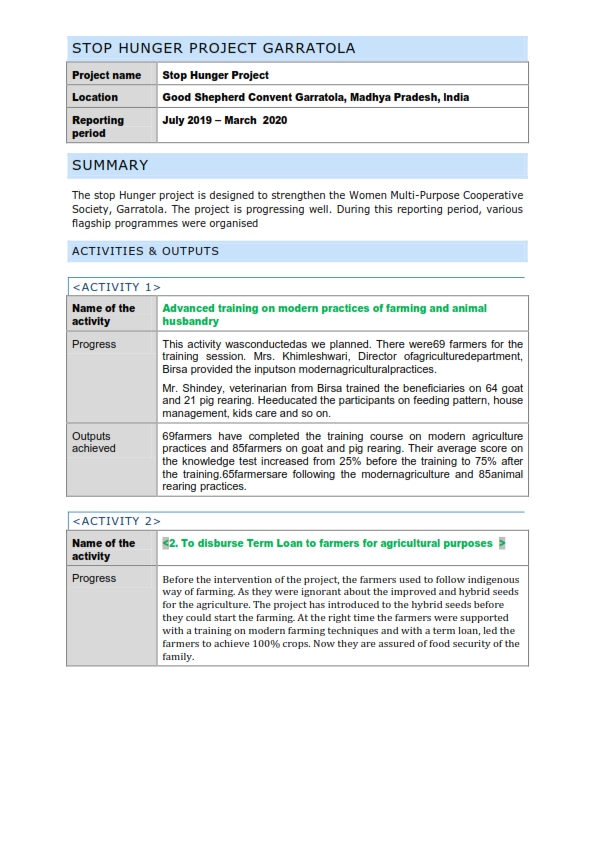
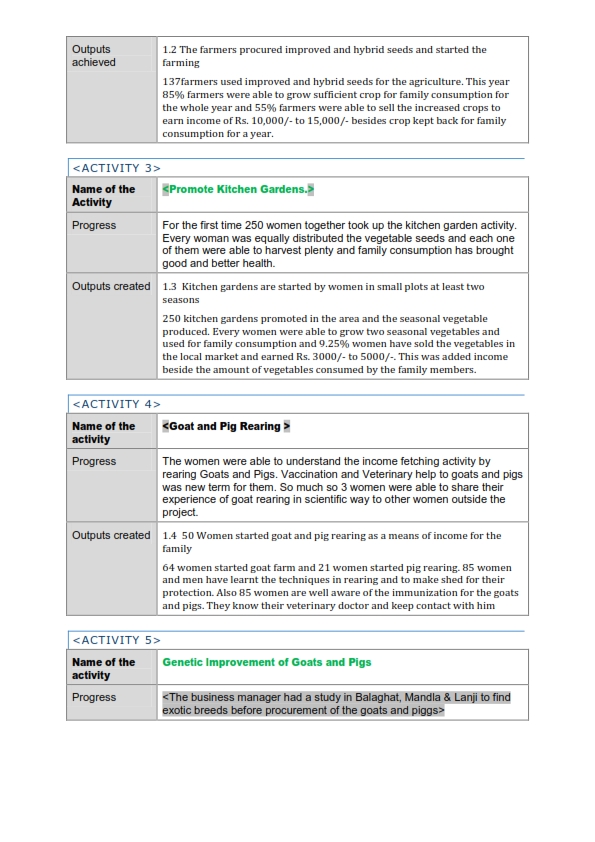
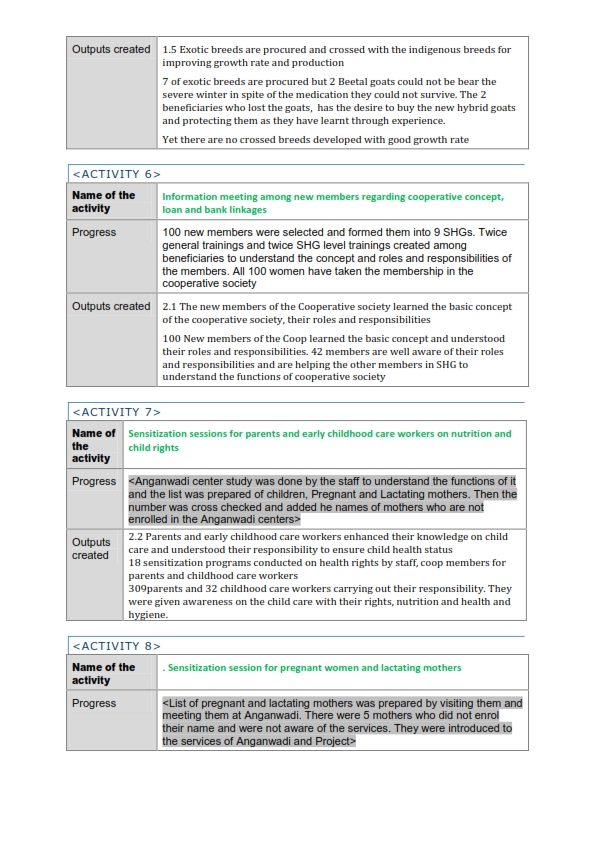
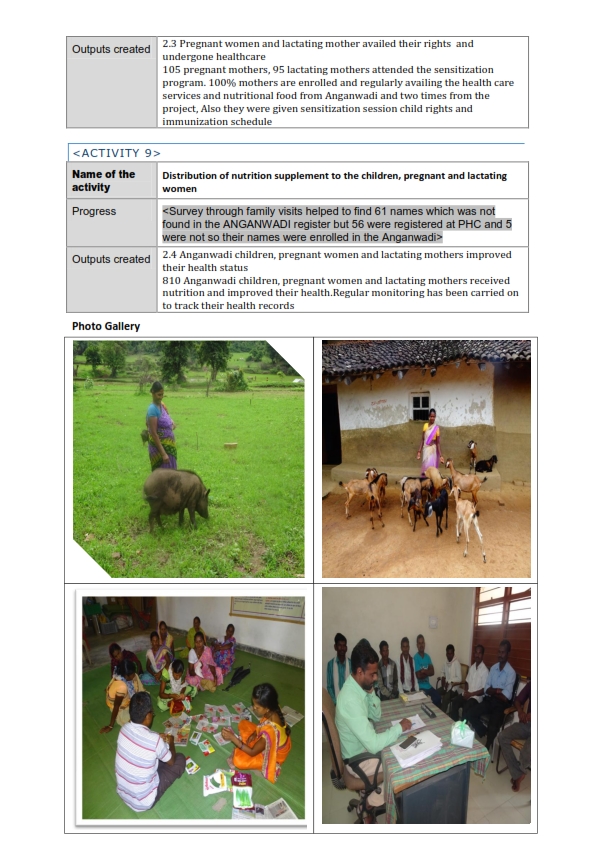
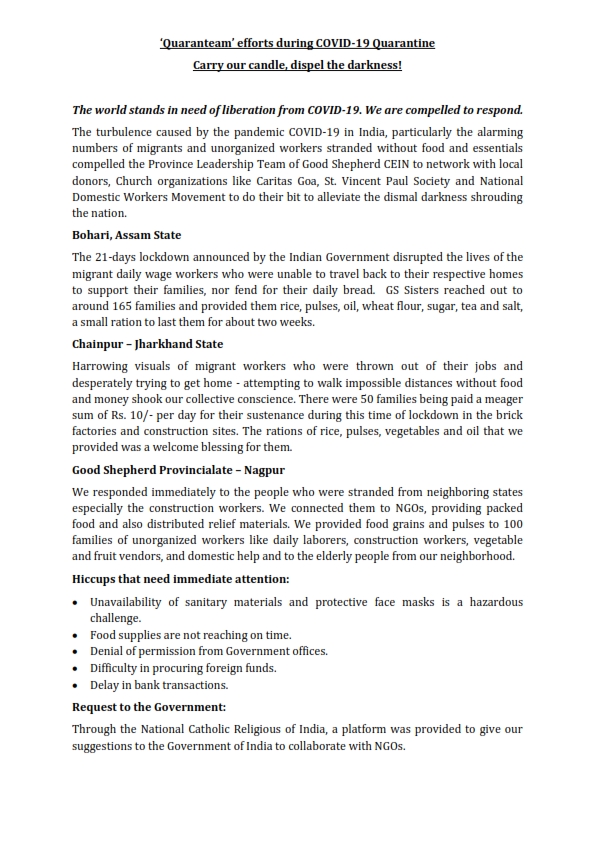
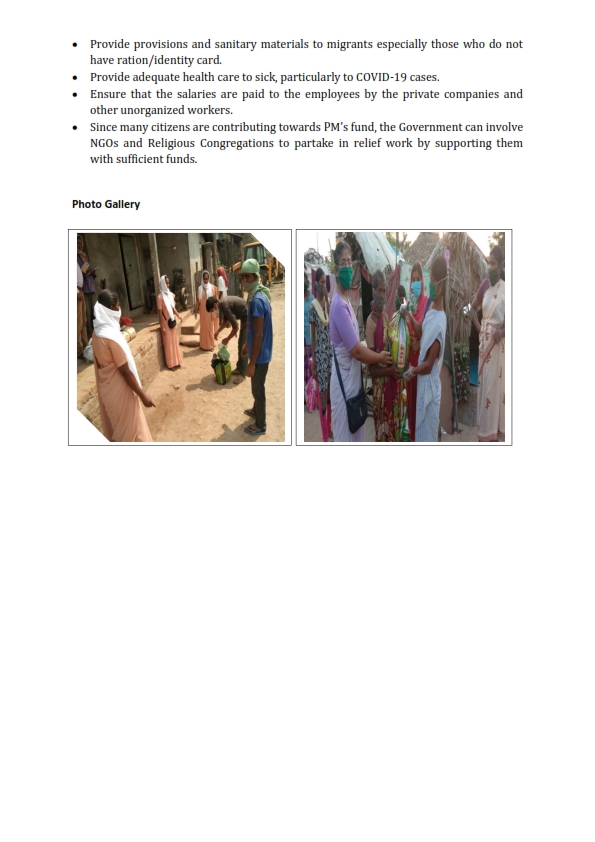
ANNUAL REPORT OF THE
ACTIVITIES OF THE SOCIETY - 2016
We are happy to present our
Activity Report for the Year 2016. We are happy to see the development
of tribals, children, youth, women and men every year.
In Garratola regular coaching classes were conducted for childrenCultural competitions were organized at Festivals, Independence Day, Chidren’s Day and other notable days and festivals .
In Mangalagiri and Amaravathi in
Andhra Pradesh
In Mulakalapalli, Telengana
State
In Nagpur – Coaching Classes
conducted for the Slum Children, Capacity building and
personality development was conducted for young women and Domestic
Workers
Jan Shakti Sanchalan Garratola
has achieved its goal by its intervention in bringing about holistic
development in the lives of the Birsa Block Tribes.
The activities during the year
were:-
Education:- 543 Primary
school going children have been regularly attending the coaching centers
in 15 target villages. The weaker children were given special attention
to improve in their studies as well as participate in the
extracurricular activities.
This year the parents contributed in kind 2kgs of paddy which was
given to teachers as their monthly salary. 41% of children have received
distinction, 49% of the children have scored above 75%, 10% scored
second division.
250 Anganwadi children were
encouraged as they were given opportunities of explore their talents by
organizing sports and picnic.
Children’s Parliament:-
There are around 773 members in 26 clubs. Every group has 8 leaders to
lead the group and each leader understands his/her roles and
responsibility in fulfilling them systematically. The project created a
platform to discover oneself through sessions focusing on Personality
Development, Public Speaking, Capacity Building which encouraged
building confidence.
Grahini Tailoring
Centre for Girls:-
15 young girls have completed their Grahini Training and were given
Sewing Machines. Girls have begun earning Rs. 130 to 200 per day by
stitching clothes in their villages. Seven girls after the sewing course
were earning and learning and they completed their B.A. Different
trainings and sessions were organised from time to time to enhance their
talents and capacity. Training on housekeeping and cooking were also
conducted for the girls.

Community Based
Organisation:- There are 26 children’s
groups, 8 youth groups, 43 self help groups and 26 farmers groups in 16
target villages. Regular input sessions and trainings were conducted to
organize and strengthen the groups. The Village Development Committee
plays an important role in implementing the project activities. People’s
participation is given importance for planning and implementing of
income generating activities and they feel the need of their involvement
in the project. The CBOs of every village are preparing to take over the
role of the project to work towards community development.
Women’s
participation has increased and they are given more opportunities in the
decision making process. SHG federation has been formed with 21 members
to take over the project programmes, but they need regular guidance to
take up the responsibility.

Panchayati Raj Institution:-
The women’s participation in the
gramsabha has increased, during the year 119 women attended the meeting
and 56 women have availed of various government schemes.

Economic Programme:-
One of the main objectives is economic development of the Birsa Block
tribes. During the year 589 families have been supported through income
generating programmes. Their contribution to the activity has enhanced
the income of the family. The programmes were goat rearing, piggery,
cycle repair shop, crop varieties, group farming, kitchen garden,
fishery, poultry, vegetable vending, petty shop etc. During the year 25
women and 5 men were taken for exposure programme to another agency,
where they could interact with the women who are the members of SHG and
Federation.



Watershed Activities:- 58
farmers
covered the watershed activities in Land Levelling, Farm bunding and
repair of farm bunding in 76.3
hectares,
the
increase in the crops has been consumed by the family during the 12
months. 667 families are assured food security of having two full meals.
The farmers were given training on organic farming which led to a
decrease of 35% of the use of chemical pesticides and promote organic
farming.
Qualitative and quantitative changes that have taken
place since the inception of the Project:
a)
85% increase in income
and food security through farm and non-farm based livelihood from base
year.
b)
70% increase in income
for the households.
c)
90% increase in months
for which food security is ensured for the target households.

d)
88% households from
target group covered for soil and water conservation and managements
practices (687 families covered)
e)
507 farmers increased
water management practices in target villages.
f)
29% increase in
agricultural productivity (second crop) in target villages.
g)
70% households from
target groups covered for horticulture/plantation.
h)
44 % reduction in
seasonal migration against 50% in 2009.
ACHIEVEMENTS OF CLIMATE CHANGE ACTIVITIES:-
Ø
70 houses who did not have electricity supply have been illuminated by
solar lanterns. Children were excited and are happy to complete their
school homework and mothers cooking in the evenings

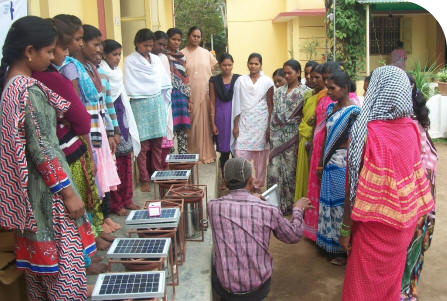
Ø
The community believes in the green finger of the children in their
vicinity. According to the monitoring report 85% of the plants have been
well taken care of by the community.
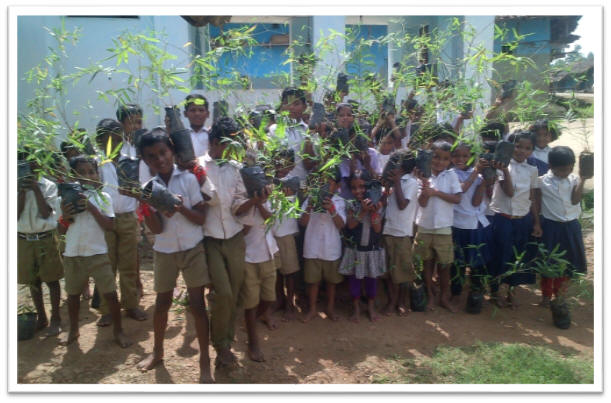
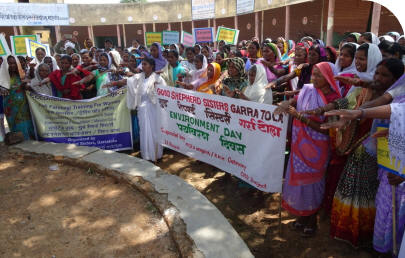
Health
Programme: - With the help of the project
for health, we were able to help 2000 sick people. We were able refer
them to other hospitals as far as Nagpur for the further treatment.
Timely health Camps were
organized with the help of Doctors from Balaghat and Birsa and about a
1000 people were attended to.
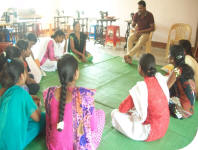
Health Workers Training:
30 Health workers were trained during the year. They were given training
on Herbal medicines and how to make them., They were also taught how to
identify sickness and bring them to the Dispensary and were further
referred to the Hospital, if needed.
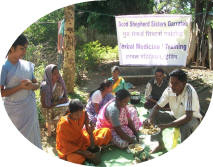
Herbal Medicines/Herbal Garden:
With the help of the health workers Herbal medicines were made for cold
and cough, malaria, scabies, massage oil for pain, balm, Iron Tonics,
cough syrup, Tonic for TB.
Also a small
Herbal garden is made with
about 50 plants which are taken care of and we have made medicine from
them.

Ante natal and post natal camps were organized twice during the year and iron supplements and vitamins were distributed to 500 mothers. Some of them, 50 mothers, had to be referred to hospital as their cases were special.

Milk Co-operative in
Mangalagiri and Amaravathi – Andhra Pradesh
100 families - 50
families each in Mangalagiri and Amaravathi - owning milch buffaloes
were identified by the staff. Each of these families receives fodder for
livestock. Before supplying this awareness programmes were conducted on
Capacity Building, life skills, group dynamics and functioning of Self
Help Groups, initiative and strengthening of co-operative structure and
initiation and strengthening of men’s support groups. Exposure visits
were organized to existing dairy co-operatives to learn about dairy
farming and co-operative structures.


Cultivation of Cotton
50 selected
farmers were given support to buy cotton seeds and were given training
of like skills, capacity building, health, agronomy process exposure
visit to a model agricultural farm, initiating and strengthening SHGs
and men’s support group. These 50 farmers will in turn help another 50
farmers in the coming year.

Prison
Ministry
Being the second capital of the
state of Maharashtra Nagpur houses a Central Jail with an accommodation
of about 2000 inmates. Hardcore criminals are assigned to this jail for
incarceration. Our ministry is initiated to extend to the inmates of
this prison to both women and men by visiting the prison once a month.
We are planning to offer skill training, value education, counselling,
motivational talks and health programmes.We conducted dental check up
for the Women prisoners on 25th September 2016. Dr. Nithin
gave a short talk on health and Hygine.


Empowerment of Women
Domestic Workers

We have registered about 1500
women with the Government and are helping many more to understand the
need for registering themselves in order to get the benefits due to them
from the Government. They are also able to voice the injustice done to
them by their employers and can solve their own problems as a group.
They have become aware of the need of educating their children and some
have even sent them for higher education. Their children are poly
technicians, teachers, health workers, computer educated and doing well
for themselves, which has given them dignity.

We are grateful to all our benefactors who generously contributed to in our efforts to reach out to the people and make them worthy citizens of our country.
Sr. Cecilia Goveas
Secretary
ANNUAL REPORT OF THE ACTIVITIES
OF THE SOCIETY FROM 1st APRIL, 2014 to 31st March,
2015
In Nagpur and Balaghat about 100
children were helped to complete another year of studies. Regular
coaching classes were conducted for the children
Cultural competitions were
organized at Festivals, Independence Day
Capacity building and
personality development was conducted for Domestic Workers
Education: - 543
Primary school going children have been regularly attending the coaching
centers in 15 target villages. Every child has been given special
attention to improve their studies
and extra-curricular
activities. 27% of children have received distinction, 59% of the
children have scored above 75%, 13% scored second division. Parents feel
good about the performance of the children.





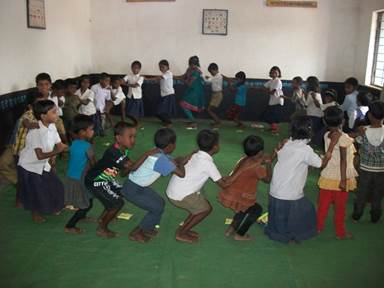
Grihini Tailoring
Centre for Girls:-
18 young girls have completed their Grihini Training and were given
Sewing Machines. Two girls are already settled in married life just
after completing Grihini course and other girls are earning about Rs.
130/- to 200/- per day. Seven girls after completing the course are
continuing B.A. studies while stitching clothes at home. Different
training programmes and sessions are organised from time to time to
enhance their talents and capacity. Training on Housekeeping and cooking
also was conducted for the girls.
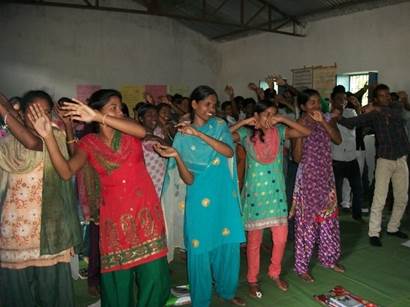
Health Programme: - The
people are well aware of the services of Primary Health Centres and are
able to avail the service through Village Health Workers and ‘Asha’ the
midwife.
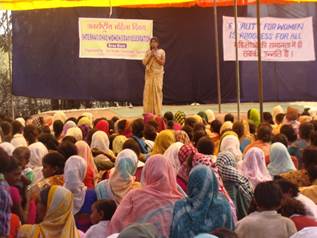
Women’s
participation has increased and they are given more opportunities in the
decision making process. The women who are in the local government are
raising their voice for equality and justice. Women have been prepared
to form a Cooperative Society.
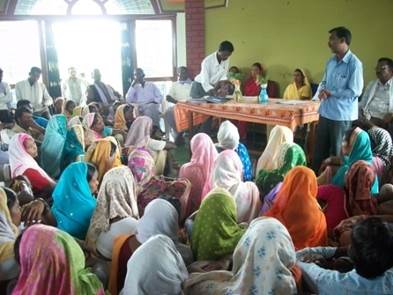
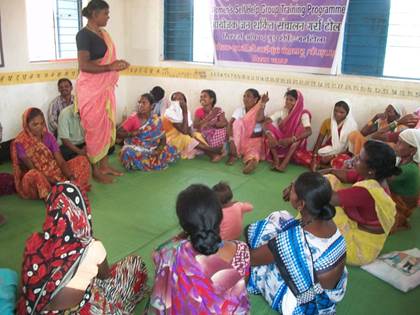
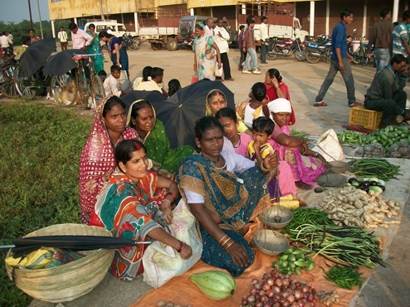
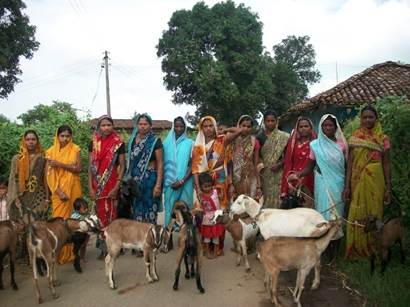
Panchayati Raj Institution:-
Session on PRI was conducted at village level. There
were about 85 participants and 89% of the people attended Gram Sabha
this year. Awareness on the importance of attending Gram Sabha has
spread.
Economic Programme: -
One of the main objectives is economic development of the Birsa Block
tribes. Every group has benefitted out of income generating programmes
such as goat rearing, piggery, cycle repair shop, mushroom cultivation,
crop varieties, group farming, pump sets for irrigation, kitchen garden,
fishery etc. Micro enterprise activity has made our youth, women and men
to take up activities like poultry, vegetable vending, petty shop etc.
During the year 45 women have been taken for exposure programme where
they could interact with the women who are the members of Cooperative
society.
Besides these farmers, 587 families have benefitted by the income
generating (on farm and off farm) activities this year.
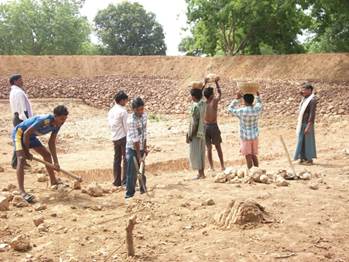
The rural marginal farmers are
the most vulnerable to the impact of Climate Change as they fully depend
on the rain water which affects their health and livelihood. The
vulnerability will create low standard of living where women and
children are deprived of their rights. They are not able to either
address or cope with the impact of the changing climate. To some extent
the people are adapting to mitigation actions such as forest protection
in every village, Watershed Activities and Plantation Programme with the
help of CFCD and Panchayat.
